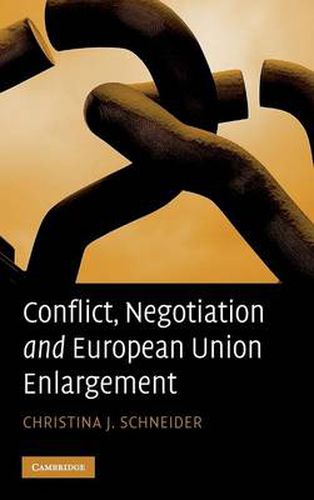Readings Newsletter
Become a Readings Member to make your shopping experience even easier.
Sign in or sign up for free!
You’re not far away from qualifying for FREE standard shipping within Australia
You’ve qualified for FREE standard shipping within Australia
The cart is loading…






Each wave of expansion of the European Union has led to political tensions and conflict. Existing members fear their membership privileges will diminish and candidates are loath to concede the expected benefits of membership. Despite these conflicts, enlargement has always succeeded - so why does the EU continue to admit new states even though current members might lose from their accession? Combining political economy logic with statistical and case study analyses, Christina J. Schneider argues that the dominant theories of EU enlargement ignore how EU members and applicant states negotiate the distribution of enlargement benefits and costs. She explains that EU enlargement happens despite distributional conflicts if the overall gains of enlargement are redistributed from the relative winners among existing members and applicants to the relative losers. If the overall gains from enlargement are sufficiently great, a redistribution of these gains will compensate losers, making enlargement attractive for all states.
$9.00 standard shipping within Australia
FREE standard shipping within Australia for orders over $100.00
Express & International shipping calculated at checkout
Each wave of expansion of the European Union has led to political tensions and conflict. Existing members fear their membership privileges will diminish and candidates are loath to concede the expected benefits of membership. Despite these conflicts, enlargement has always succeeded - so why does the EU continue to admit new states even though current members might lose from their accession? Combining political economy logic with statistical and case study analyses, Christina J. Schneider argues that the dominant theories of EU enlargement ignore how EU members and applicant states negotiate the distribution of enlargement benefits and costs. She explains that EU enlargement happens despite distributional conflicts if the overall gains of enlargement are redistributed from the relative winners among existing members and applicants to the relative losers. If the overall gains from enlargement are sufficiently great, a redistribution of these gains will compensate losers, making enlargement attractive for all states.